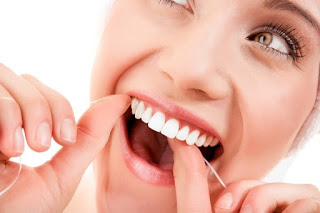Have you ever wondered why dentists are so keen on brushing and flossing twice each day? The answer is to get rid of plaque. Plaque is a sticky, colorless substance that is continually growing on and surrounding your teeth. If not removed, the bacteria in plaque will start to infect the teeth, gums, and eventually the gum tissue and bone supporting the teeth. When it comes to your oral health, the best cure is prevention, so it’s important to understand the risks and symptoms.
If not removed, the bacteria in plaque will start to infect the teeth, gums, and eventually the gum tissue and bone supporting the teeth. When it comes to your oral health, the best cure is prevention, so it’s important to understand the risks and symptoms.
While the main cause of gum disease is plaque, there are some other risk factors that affect the health of your gums:
- Age: Studies indicate that periodontal disease is more prevalent in older people, with the Centers for Disease Control and Prevention indicating that over 70% of people 65 and older suffer from periodontitis.
- Crooked teeth: Uneven teeth can sometimes be difficult to floss between, but if you ignore these areas, you will increase your risk of gum disease.
- Medications: Many medications, such as oral contraceptives, antihistamines, and antidepressants can cause dry mouth, reducing the amount of saliva in your mouth so that there is less to wash away plaque.
- Genetics: Unfortunately, some individuals are more susceptible to gum disease. If there is a history of gingivitis in your family, getting an early test may save your teeth.
It is also important to recognize the symptoms of gum disease. Here are a few things to watch for:
- Bad breath or a bad taste in your mouth that won’t go away
- Pus between your gums and teeth, or any other sores in your mouth
- Red, swollen, tender or bleeding gums
- Receding gums or gums that are pulling away from the teeth, causing them to look longer than normal
There are several stages of gum disease. If you have been diagnosed with gingivitis, your gum tissue and bone has not yet been affected, and the damage can be reversed. If gingivitis is left untreated, it will progress to periodontitis, and the damage to the bone will be irreversible. To catch this disease before it causes any permanent damage, consult your dentist immediately if you have any risk factors or symptoms.
